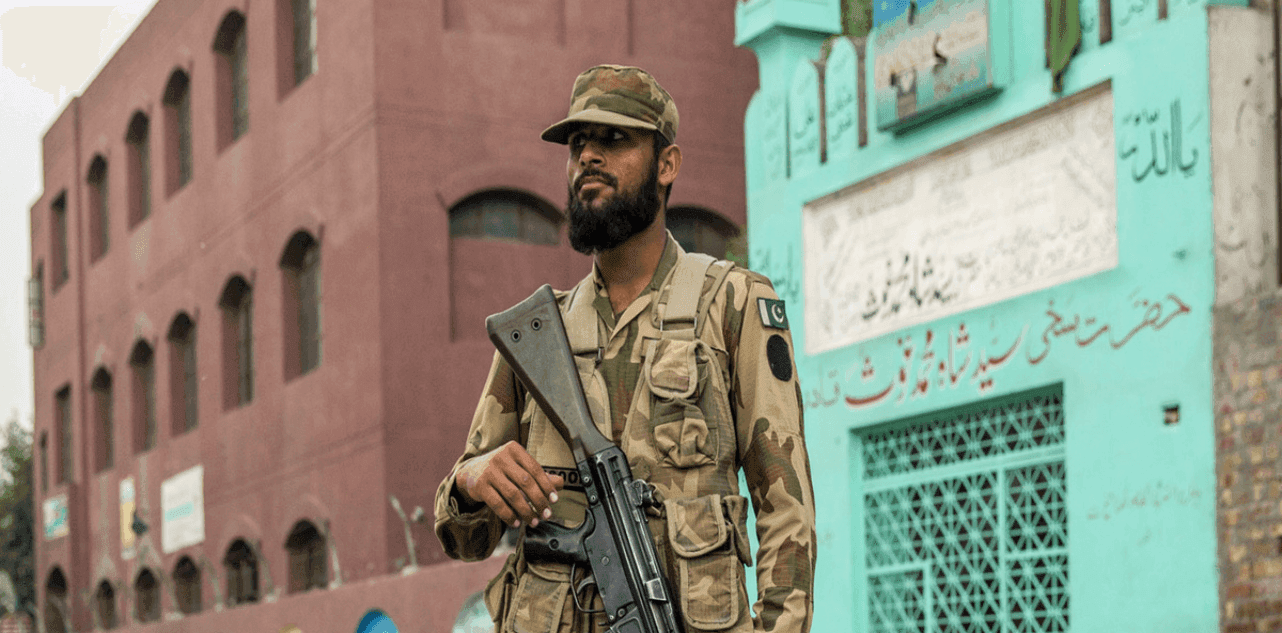Monday 16 February 2026
Pakistani Military in Crisis Situation following Pahalgam Attack?
Share

A viral letter allegedly from the Pakistan Army's public relations head hints at mass resignations and falling morale, amid rising fears of war with India following a deadly terror strike in Kashmir.
A leaked message doing the rounds on the social networking website has rung the alarm bells in the backdrop of an alleged simmering revolt in the pipes in the Pakistani Army. The letter reportedly being sent out by DirectorGeneral Inter-Services Public Relations (ISPR) Major General Faisal Mehmood Malik urges the troops to hold their ground and reject resignations and desertion as it is termed "an uncertain and troublesome time for the country."
The letter appears to be on the growing demands for resignation and also low morale among the troops.
#BigBreaking #Pakistan Army formally accepts massive surge in resignation.
— Desh Bandhu Pandey (@dracula_empathy) April 28, 2025
Beware - Likely a step to include them directly in Jihadi operations.
To Later deny accountability pic.twitter.com/AWWME8nNu6
Speculative assumption is underpinned by Army Chief General Syed Asim Munir reports. The popular social media handles such as #MunirOut have created suspicion over the whole hiding or escaping of Munir in a foreign land and his relatives as well. Since it neither made a formal confirmation nor denial of the news nor did there remain an acceptance on the part of Pakistan's top rank military leadership too, silence has created space where people's fears and speculations are being filled to the brim.
Pakistan Army indignation comes in the wake of stunned terrorist attack in Pahalgam, Jammu and Kashmir, which left 26 civilians dead and dozens injured. India immediately blamed Pakistan-based terror organizations for the attack and reacted with a sequence of diplomatic and strategic actions.
India cancelled Indus Waters Treaty arrangements, sent Pakistani ambassadors packing, severed key communication connections, and closed the Attari land-conveyor factory. The attack brought Indo-Pak relations to an all-time low.
Pakistan closed down Indian civilian overflights across Pakistani territory and brought its own soldiers to combat readiness. Intelligence sources indicated India would be undertaking some trimmed-back military action in 24 to 36 hours.
Pakistani Information Minister Attaullah Tarar threatened in a speech that if ever India becomes offensive, the Pakistani response will be "immediate and strong". The aggressive mindset of the two nations suggests that the possibility of a war or a collision by design or by accident dominates.
In Indian-held Kashmir, the government retaliated with blanket security. Over half of the territory's tourist sites have been shut down, and thousands have been arrested in a blanket crackdown to avoid further disruptions.
Strategic experts hold the opinion that if at all a revolution has been talked in the Pakistan Army, the result would be disastrous. The army has ruled defense for years but not merely defense directly involved in politics. Defeat of the military or collapse of command will weaken the state in countering external as well as internal crises seriously.
Troops' desperation is brought about by fear of a costly war against India, grievances against commanders, or just plain hard leadership in uncertain times, analysts argue.
With two nuclear-armed neighbors exchanging veiled threats and bickering with internal and external issues, matters could not become any worse. The leaked fake or real letter is an indication of a looming crisis brewing in the Pakistani military—while the country readies itself for possible escalation against India.
Newsletter
Stay up to date with all the latest News that affects you in politics, finance and more.